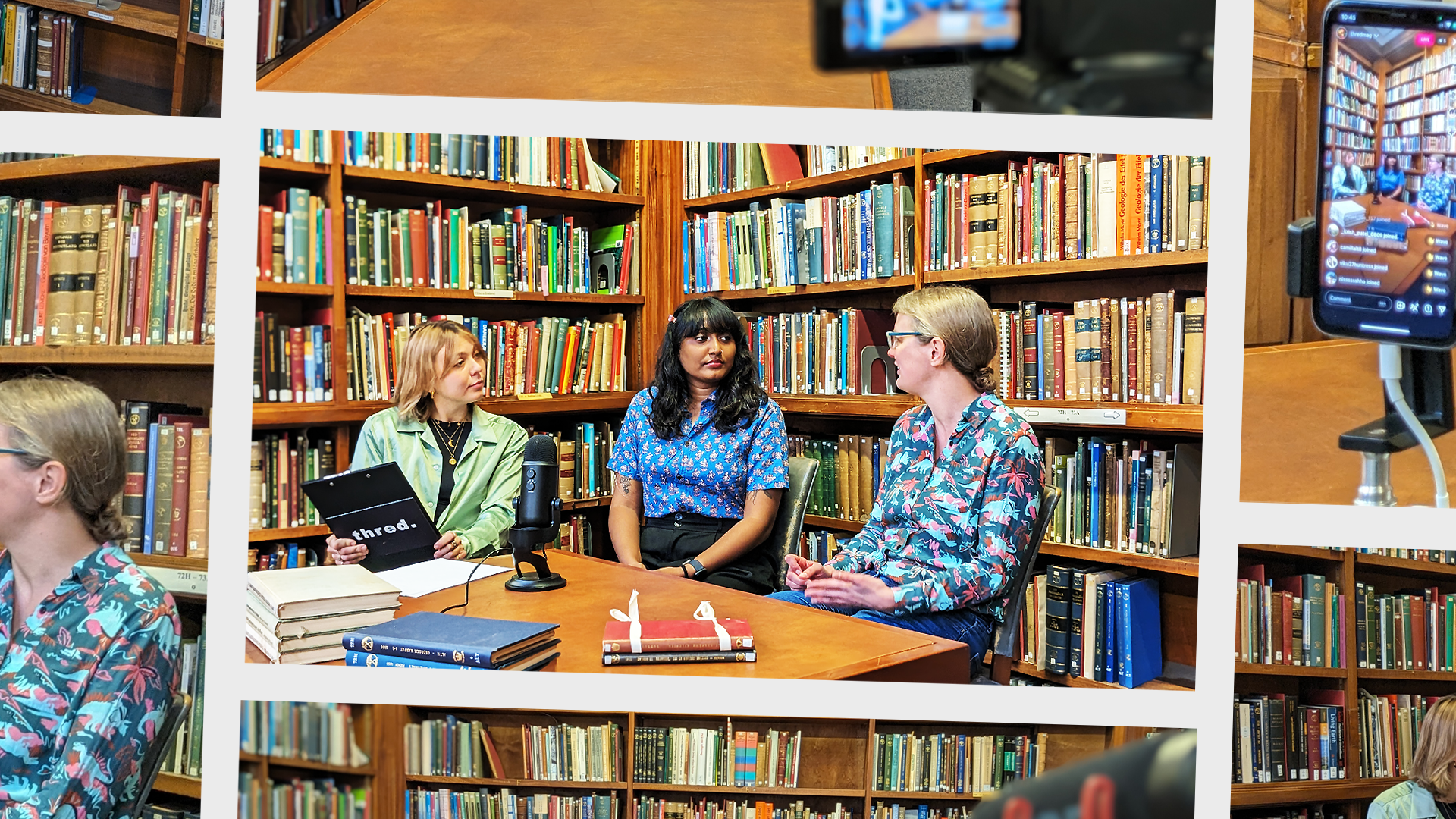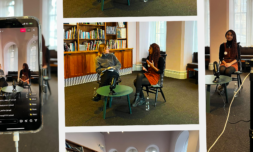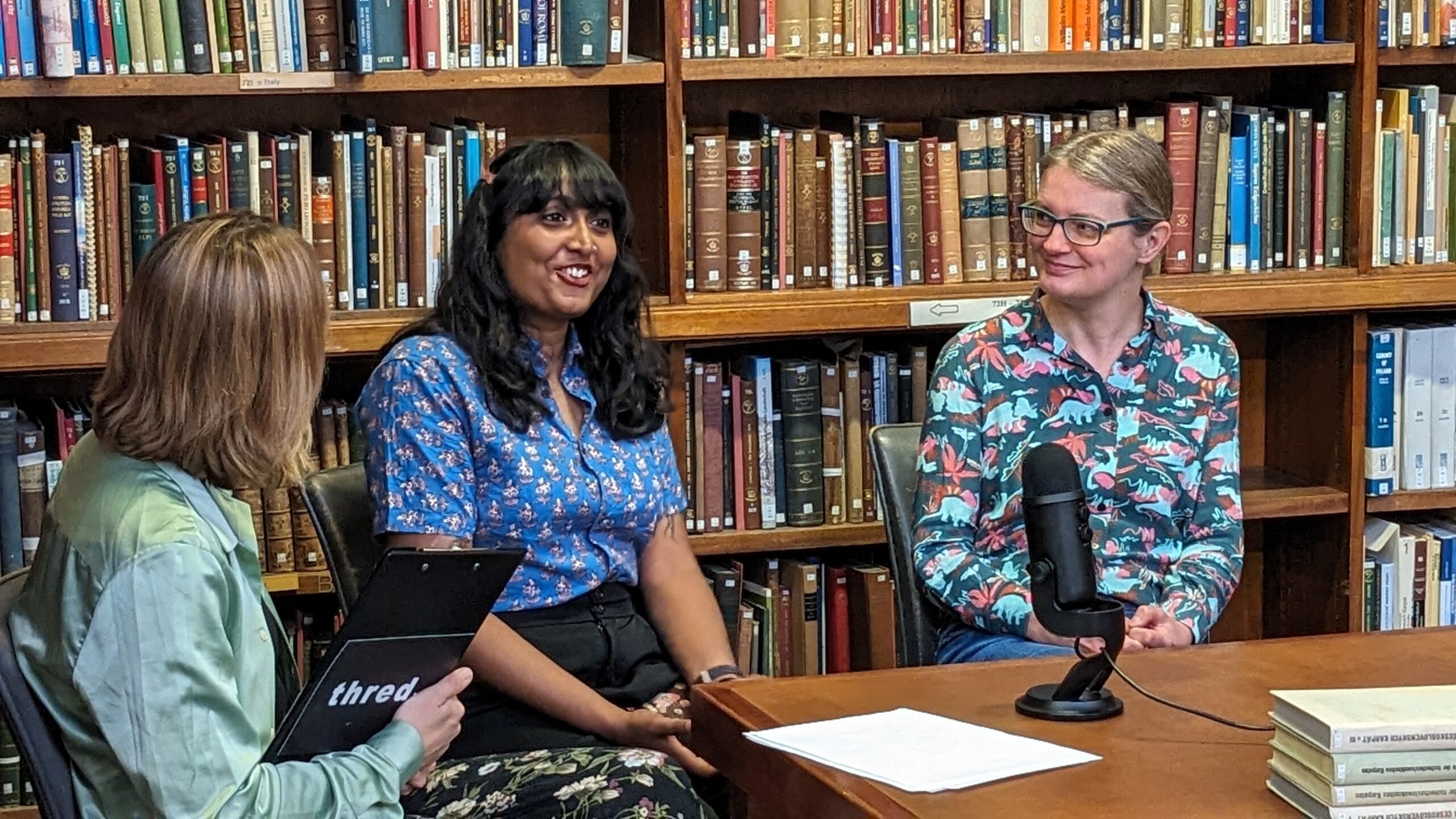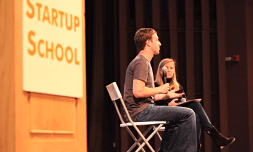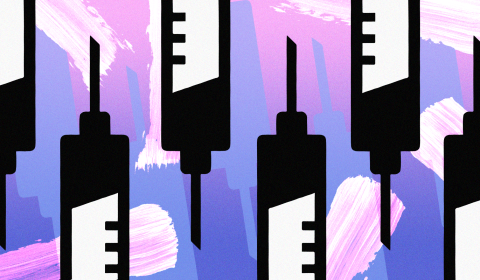We went to the Natural History Museum’s Generation Hope: Act for the Planet event to highlight both the climate justice activist’s and the evolutionary biologist’s insights on the climate crisis and how we can drive positive change for the Earth’s future.
Disha Ravi is a climate justice activist, storyteller, and one of the founders of Fridays For Future India. Part of the organisation’s Most Affected Peoples and Areas wing, her work centres on amplifying the voices of those bearing the brunt of the crisis’ impacts. This, and making the topic of our planetary emergency a household discussion because, as she asserts, only when we know the truth can we act on it and consequently ensure that communities in need are receiving the aid they deserve.
Dr Natalie Cooper has been working at the Natural History Museum for almost eight years. She is an ecologist and evolutionary biologist whose focus is on understanding how the diversity of life has evolved and how we can protect it from human activity. Her research sits at the interface between macroecology and macroevolution, and aims to understand broad-scale patterns of biodiversity.
View this post on Instagram
Thred: It’s almost been a year since we last spoke at Generation Hope’s launch event. What wins has activism or climate science seen in that time? What losses?
Disha: I think we’ve seen more losses than wins, which is quite sad. Back home, we’ve experienced the worst heatwaves in decades, detrimental flooding, and there’s been a lot of deforestation.
But I do feel like there’s a more urgent and immediate response to the climate crisis now and that more groups of people are coming together to join the fight. This is powerful and reminds us to remain hopeful because we can only truly address and ultimately solve this issue if everyone contributes.
Natalie: From a scientific point of view, it’s been a really tough year, with research suggesting that our baselines are incorrect, and that we may have already reached the 1.5 degrees threshold that we’ve been striving to avoid. But it’s definitely positive that more of us are getting involved.
Thred: What are some new ways in which we can be waking people up to the severity of this?
Disha: Yes, statistics are important, but they can often go over people’s heads.
What really helps are stories that we can connect with, relate to, and understand. Sharing what we’re witnessing directly.
In India, there is a lack of water, shorter winters, and air pollution levels in Delhi that are so bad, one in three people have ailments as a result. These are very noticeable factors that will continue to get worse without intervention. So, talking about them is necessary as it encourages people to act.
Thred: How do we stay hopeful?
Natalie: It can feel hopeless if you’re not connected to a community that’s trying to bring about change. So, go to events that give room for transforming mutual anxiety into collective action.
Disha: There’s a poem I like that paints hope as a sewer rat determined to survive in harsh conditions. This highlights the importance of perseverance. We have to hold onto hope at a time in which we’re scared and exhausted.
Hope is an active stance that you have to make an effort to attain.
Thred: What are your thoughts on the outcomes from COP28? Specifically, do you think the agreement on a ‘loss and damage’ fund to compensate poor states for the ever-worsening repercussions of climate change at the UN’s annual conference went far enough?
Disha: The loss and damage fund was a huge win; I’m not going to discredit that. But the fact that they’re now discussing who’s actually going to control where the money flows to is concerning and disappointing. The fund’s creation is an acknowledgement that there have been losses and damages, but it doesn’t acknowledge that the climate crisis’ impact on vulnerable nations has been caused by specific countries, colonialism, and imperialism. They need to take responsibility. It shouldn’t be in the form of another loan; it should be in the form of reparations or debt cancellation.
Natalie: COP is always just very depressing. Every year great resolutions are brought forward, you get excited and think “people might finally start taking this seriously,” and then it’s watered down. It was also particularly disappointing to see how many fossil fuel lobbyists were in attendance.
Thred: The science is clear – we need urgent and effective action to reduce the growing threats against biodiversity and the health of current and future generations. However, many industries (primarily coal, oil, and gas) spend time and money trying to cast doubt on research examining the climate crisis. How can we educate ourselves on environmental disinformation and address the problem of this narrative to stop it from delaying progress any more than it already has?
Natalie: I would highly recommend tuning into Amy Westervelt’s Drilled podcast.
Disha: I agree!
I also think it’s really important to be conscious about how you interact with content.
People don’t usually take the time to verify their sources, which is a problem. Ensure you’re asking questions. Who is getting paid to distribute this information? It’s as easy as a quick Google search. And always pause before you share. It will help you reflect on whether or not it’s worth doing so.
Thred: Why is intergenerational collaboration so important and how can we be fostering it?
Natalie: The problem is that young people have the enthusiasm and energy to do things. But older generations run the world. They’re the ones with the money. Young people want change and older generations have the power to make it happen so we need more conversations between them.
Disha: In recent years, young people have faced immense pressure to ‘save the world.’
It has to be a collective effort, however, it cannot be on our generation to fix things. Because the power lies in the hands of a select few, we need intergenerational collaboration to distribute it so that we can combine our own skills, knowledge, and experiences to work towards a better future.
Thred: Is it getting harder or easier to be involved in this kind of work? What’s kept you going?
Disha: India is one of the top ten most dangerous countries in the world for climate activists and environmental defenders. The reason we aren’t higher up on the list is because this particular report tracks killings and in India, people protesting aren’t being killed, they’re being slapped with charges and thrown in jail for decades, sometimes without trial. This is deterring a lot of people from getting involved and it’s very difficult to fight it because environmental laws in India are in favour of big corporations and it would be a long, time-consuming, expensive process to change this.









